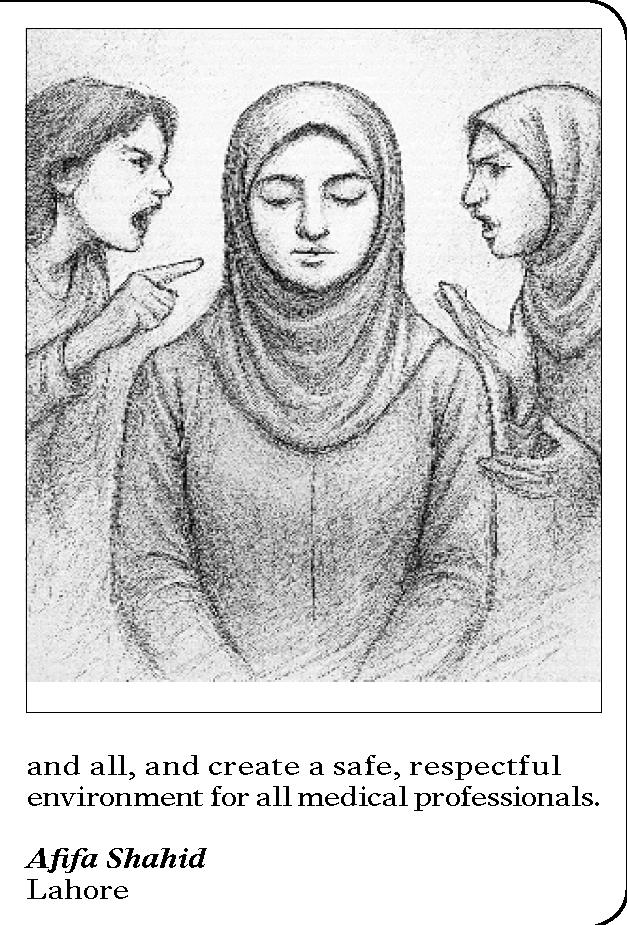A case of rather strange harassment
2025-08-03
WE have all heard about the issues fresh medical graduates face and about women`s harassment by men at workplace. But women house officers at Mayo Hospital in Lahore are facing a unique kind of bullying at what is one of the country`s leading public hospitals, and that, too, by senior women doctors. Yes, you read it right; women harassing women.
Several women house officers, who are young doctors undergoingprofessional training, have faced harassment and bullying by senior female staff for not wearing a hijab. These house officers are in clinical scrubs that are widely considered professional, modest work clothes in hospit als worldwide.
Despite being fully covered and adhering to professionaldress codes, these young doctors are considered `vulgar` and blamed for `spreading indecency`. Rather than focusing on the conduct of male attendants who are reportedly engaged in inappropriate staring, some senior women doctors havechosen to blame the young women doctors for supposedly provoking such a behaviour. This assertion is both regressive and insulting.
In one contrastinginstance, a house officer, who recently started wearing a hijab, was mocked for her personal choice, revealing the hypocrisy and bias at play.
This behaviour is deeply unprofessional and damaging.
Wearing a hijab or not does not define a woman`s character, nor does it justify labelling her as `vulgar`. Such bullying violates workplace ethics, and undermines the mental health, dignity and learning environment of young professionals.
Medical institutions should be centres of excellence, where staff are judged solely on their competence and dedication, not personal appearance or religious choices.
Hospital administrations, especially in premier institutions like Mayo, must enforce strict anti-harassment policies, ensure ethicalconducttrainingfor one




